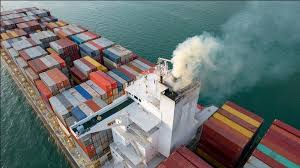Maritime Industry Pushes for Global Net-Zero Framework

Leading maritime organizations are urging governments to adopt the “Net-Zero Framework” during the upcoming Extraordinary Session of the UN International Maritime Organization (IMO) Marine Environment Protection Committee, scheduled for October 14-17. This initiative aims to achieve net-zero greenhouse gas emissions in the shipping sector by 2050, emphasizing the need for a unified global approach to decarbonization. The maritime industry is committed to collaborating with IMO Member States to ensure the successful implementation of this regulatory package, which includes incentives for investment in green marine fuels.
Urgency for Global Regulations
The maritime transport sector, responsible for moving 90% of global trade, is at a pivotal moment. Industry leaders stress that only a comprehensive set of global regulations can effectively decarbonize this vital industry. Without the adoption of the Net-Zero Framework, there is a risk of fragmented regulations emerging across different regions. Such a scenario could lead to increased operational costs for shipping companies without making significant strides toward reducing emissions.
Industry representatives believe that this is a historic opportunity for governments to establish a robust global framework that will be enforced uniformly. This framework is designed to incentivize the shipping industry’s transition to net-zero emissions while ensuring fair competition among all players in the market. The call for action highlights the importance of a just transition for the maritime workforce, ensuring that the shift towards sustainable practices does not adversely affect jobs within the sector.
As the world grapples with climate change, the maritime industry is ready to play a crucial role in fostering a sustainable future. The upcoming IMO session represents a critical juncture for the industry, as stakeholders seek to align their efforts with global climate goals and secure a cleaner, greener future for international shipping.
